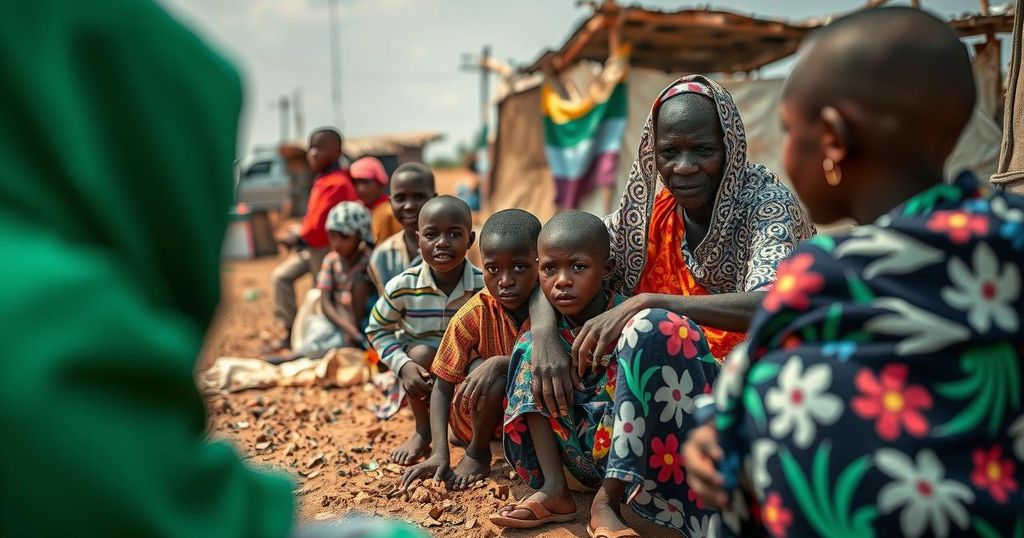Burkinabè Refugees in Mali: A Call for Urgent Humanitarian Assistance
Over 20,000 Burkinabè refugees have arrived in Koro, Mali since January 2024, amid a critical lean season characterized by food scarcity and limited resources. Local communities have displayed commendable generosity, but there is an urgent need for enhanced international support to mitigate the challenges faced by both refugees and host families.
As of early 2024, the Koro cercle in Mali has seen an alarming influx of over 20,000 Burkinabè refugees, with many more individuals pending registration, according to a recent joint assessment conducted by the Norwegian Refugee Council (NRC) and various partners. The continuous arrival of these refugees is significantly straining the limited resources of local communities, which are already grappling with high numbers of internally displaced persons. Maclean Natugasha, NRC’s country director in Mali, highlighted the dire challenges these refugees face, stating, “Burkinabè refugees are facing a double burden of displacement and food insecurity during this critical period. The lean season is the most difficult time of the year for families to survive, and the situation is alarming for thousands of refugees in central Mali.” In response to the crisis, local leaders in Koro have generously offered arable land to refugees. However, many of these individuals lack the necessary resources to cultivate this land, thereby increasing their reliance on humanitarian assistance, which remains insufficient given the scope of the ongoing crisis. Numerous displaced families continue to face homelessness or reside in overcrowded conditions, often dependent upon host families, who themselves are vulnerable. The humanitarian response is further impeded by deficiencies in funding and difficulties associated with registering and providing aid to refugees in remote and inaccessible areas. One refugee, Hamidou, shared his plight: “We fled our homes in Nodin village in northern Burkina Faso with nothing, and now we struggle to find even the most basic necessities here in Mali. We hope that those who can help do not forget us.” Natugasha emphasized the need for action, noting, “These refugees have endured unimaginable hardship, and their resilience is inspiring. But resilience alone cannot sustain them through the lean season. The international community must step up its efforts to provide food, shelter, and essential services to both the refugees and the host communities that have shown such generosity.”
The situation faced by Burkinabè refugees in Mali has escalated due to ongoing conflict and instability in northern Burkina Faso, leading to significant displacement. As of July 2024, more than 180,000 Burkinabè refugees are residing in Mali, with a majority of them struggling with food insecurity, inadequate shelter, and limited access to basic services. The lean season, characterized by food scarcity, compounds these challenges. Local communities, despite their vulnerability, have shown remarkable support to refugees, although the increased population is exerting substantial pressure on shared resources. The humanitarian community faces critical obstacles, notably funding shortages and logistical challenges in delivering assistance to remote regions.
In conclusion, the Burkinabè refugees in central Mali are facing a severe humanitarian crisis marked by displacement, food insecurity, and overcrowded living conditions. Local communities are demonstrating commendable generosity, yet the challenges presented by the lean season, inadequate humanitarian response, and lack of resources necessitate immediate international intervention to alleviate suffering and support both refugees and host communities. The urgency of the situation calls for a concerted effort from the global community to ensure that the needs of these vulnerable populations are met promptly and effectively.
Original Source: www.nrc.no








Post Comment